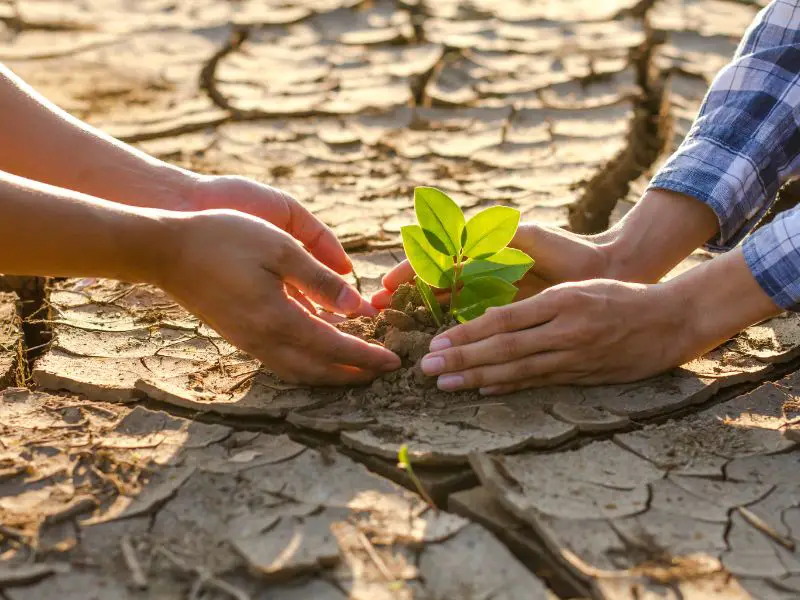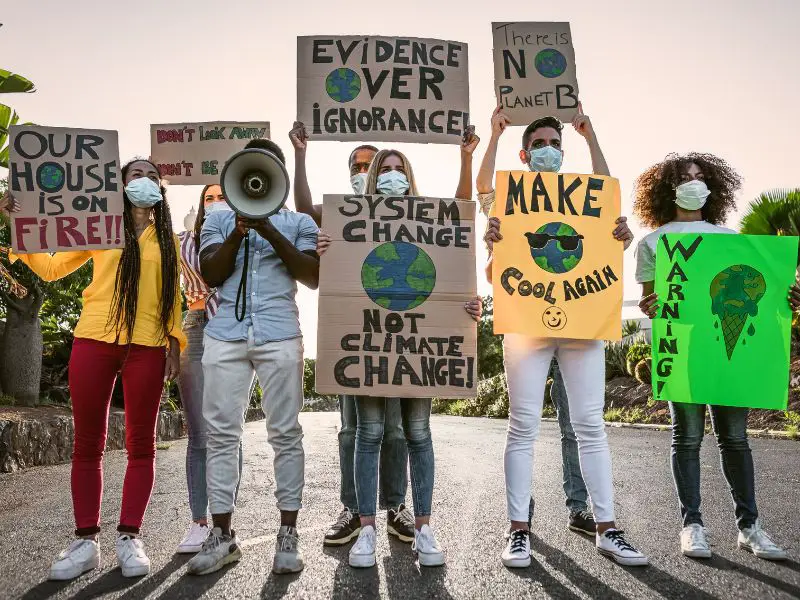Scientists agree that rising temperatures, droughts, and wildfires are all clear signs of climate change happening on our planet since the Industrial Revolution began a couple of centuries ago. In the last 40 years, these things have more than doubled.
Although the numbers are scary, climate activists say that not all hope is lost and that we can still do much to help. One of those things can be as easy as picking up at least one of the many climate change books currently available in the market. By learning the facts about the state of our planet, you can make better-educated choices.
If you want to understand better about climate change and what you can do on a personal level, reading a book is an excellent place to start. Here are some of our favorites:

Climate Change Books: The Top 11 Books to Read
1. Losing Earth – Nathaniel Rich
The Earth is losing its water, biodiversity, and atmosphere. Nathaniel Rich’s brilliant Losing Earth uses gripping true-life accounts to explore how the planet is being lost and what we can do about it. From the melting of Antarctica to the loss of the Great Barrier Reef and the Arctic ice cap, Losing Earth is a gripping wake-up call.
Rich argues that there is still time to preserve the Earth, although his book focuses on the decade wasted in the battle against climate change. Read the awe-inspiring tale of human greed and stupidity in Losing Earth to decide whether you share his optimism.
2. Now Is the Time for Trees – Dan Lambe
This book will show why now is the moment to plant trees and forests, which have been selected as the number one nature-based response to climate change. Experts motivate you to do your bit by choosing the proper size and kind of tree and tried-and-true planting strategies. This is an outstanding resource for anybody interested in planting trees at home or in their community.
3. Windfall: The Booming Business of Global Warming – McKenzie Funk
Windfall is the first book to take a hard look at the growing industry that seeks to profit from global warming. McKenzie Funk traces the origins, explores the motives of climate profiteers, and shows how they exploit fears over global warming for profit.
As it turns out, the climate issue is a huge business, with obscene quantities of money moving hands among a privileged few while the global masses suffer. Funk exposes the nefarious economic methods of environmental tycoons attempting to keep humanity alive, revealing that popular wisdom is correct: when in doubt, follow the money.
4. The Sixth Extinction – Elizabeth Kolbert
Five major extinctions have occurred throughout Earth’s history. Scientists are already observing the sixth one, which is predicted to be more destructive than the one that killed out the dinosaurs. Instead of an asteroid, however, humanity will be held accountable.
The author, Elizabeth Kolber, is a journalist for the New York Times. In this book, she combines information from various fields and details the number of species that have been extinct or are in danger due to human activity. This book demonstrates to us, via sharing these instances, that the sixth mass extinction is taking place right before our eyes and will be the most significant legacy humanity leaves behind. It compels readers to consider what it means to be human.
5. On Fire: The Burning Case For a Green New Deal – Naomi Klein
Naomi Klein is back on our list with another must-read. Klein’s articles are collected in one book and serve as grim warnings about what lies ahead if we do not act now. On Fire delves into several issues, from human history and evolution to social justice, and illustrates how bold climate action may be a pattern for a fair and prosperous society.
Klein argues that the only way to end the crisis is to change the systems that caused it in the first place. He does this by giving hopeful glimpses of a better future.
6. Regenesis: Feeding the World Without Devouring the Planet – George Monbiot
We are least willing to discuss industrial agriculture as the primary driver of deforestation and environmental degradation worldwide. We decry urban development, yet agriculture occupies thirty times its total area. Yet millions still go hungry. Currently, the food system is starting to fail. In this remarkable new book, George Monbiot demonstrates that we can address the greatest of our problems and feed the world without destroying the Earth.

7. Commanding Hope: The Power We Have to Renew a World in Peril – Thomas Homer Dixon
Sometimes a shift in viewpoint may make all the difference, which is precisely what Homer-Dixon says in this book. The verdict? We must collaborate in unprecedented ways if we are to accomplish profound changes. He illustrates how the enormous challenges of our time can be met with only the most unlikely alliances of unlikely people. Homer-Dixon provides concrete examples of unique collaborations in engineering, cultural studies, and economics in Commanding Hope. He also writes about his experience directing two of the world’s most successful sustainability efforts – one in the U.S. and one in China.
8. Doughnut Economics
Doughnut Economics is a guide to the economics of inequality. It argues that we urgently need a new economic model that puts people and the planet before profit. Kate Raworth’s book offers vital tools for understanding, diagnosing, and solving the most significant financial challenge of our time. It describes how traditional economics has resulted in a system that traps billions of people in poverty and causes infinite environmental catastrophes.
9. Merchants of Doubt – Naomi Oreskes & Erik Conway
Think you’ve read enough about economics and politics? Think again. In Merchants of Doubt, Naomi Oreskes and Erik Conway tell the story of the rise and decline of ‘merchants of doubt’ – the PR consultants and scientists who spread confusion in the public mind over issues like tobacco, acid rain…and climate change. These are the same people that deny the truth that smoking leads to lung cancer.
10. How to Avoid a Climate Disaster – Bill Gates
The Bill & Melinda Gates Foundation pledged $310 million in 2019 to help farmlands all across the globe adapt to the effects of climate change. In a book that is both wonkish and convincing, Gates lays out an ambitious strategy to cut carbon emissions to zero by 2050, taking his environmental advocacy to a new level. Gates calls for scientific (such as the development of alternative fuels), and individual (such as changing one’s lifestyle) answers, drawing on the work of scientists, politicians, and engineers (like increasing civic engagement in environmental justice issues).
11. Hot, Hungry, Planet – Lisa Palmer
Palmer is concerned with enhancing food security and resiliency in the face of continuous climate change. She also provides examples of how India, sub-Saharan Africa, the United States, Latin America, the Middle East, and Indonesia might combat socioeconomic disparity and global hunger. The book advocates increased food production, consumption, and investment in productive agricultural capacity.

Author’s Note
The climate is changing, and this is undoubtedly due to human activity. But just how much the climate will change and how bad that will be is up for debate. Some scientists believe it’s impossible to predict precisely when a climate disaster will happen, but we can take action to try and prevent that disaster from happening. Climate change is inevitable, but how much our planet can adapt and how drastic these changes will be, are determined by our actions. We do not doubt that we can continue to learn and adapt our ways of life, one step at a time.
Related: Water Sources in the Desert, How to Achieve Economic Sustainability, Understanding the Environmental Quality Incentives Program (EQIP)


2 thoughts on “Climate Change Books That Will Change Your Perspective on the World”